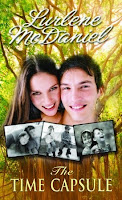 |
| Hunger Book Two of Gone Series Written by Michael Grant |
This is the second book of the Gone series, written by Michael Grant. I came across this series after searching for books similar to the Hunger Games Trilogy, which I loved. Grant's series of books revolve around a town which suddenly becomes cut off from the rest of the world after all the people over the age of 15 disappear. If you haven't read Gone, start here.
As I've found common in many long series, there are going to be books that are more exciting than others. For me, Hunger was one of those more tedious reads. Grant's ability to keep me in just enough suspense by using the countdown concept at the beginning of each chapter again and my own natural curiosity about what would happen in this phase of the FAYZ helped me through the drier sections of the book.
Hunger begins, just a few weeks after Gone ended after Caine and Sam had managed to keep from jumping. Since word spread that it was possible to stay, many more kids were able to remain after their 15th birthday. Unfortunately, for those who stayed, life was beginning to get a little more unpredictable as their food stores began to dwindle and all of the inhabitants of the FAYZ (Fallout Alley Youth Zone) start to get really really hungry.
Grant does a good job of exploring this inevitable phase in a post apocalyptic environment. I felt like he took a realistic view of how a village filled with children and teens would react to their sudden isolation--both the mistakes they would make and the ways in which they would overcome obstacles. Like any good dystopia, the Gone series is more about delving into the human psyche and exploring how people react to such unexpected and life altering circumstances.
Grant also manages to give the reader unique and complex characters that are deep and real--characters you either love, and even those you love to hate. His characters can be utterly predictable at times, and then at other times they will behave in ways that have you gasping with surprise. Grant kept me guessing about who will fall victim to the "mob mentality", who will rise above, who will encourage others to rise above, who will lead, who will rebel, etc. I love these characters.
The final pages of Hunger leave you wanting more, just like Gone did. I have to know what happened to these kids. I need to know what obstacles they will be forced to face next, what horrific decisions they'll be forced to make, and if they will ever manage to truly band together. You are left with that knowledge that it is imperative that they learn to work together if they have a hope of survival.













